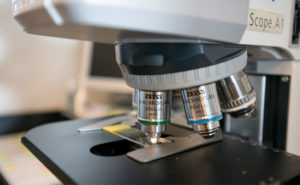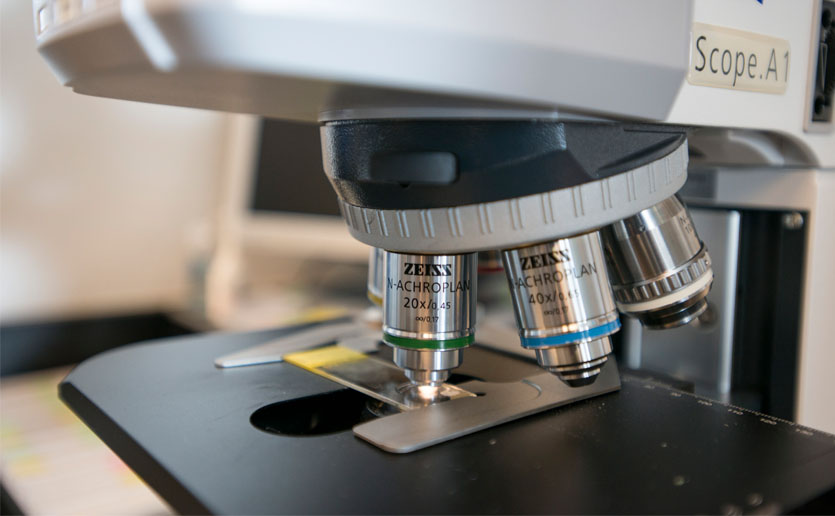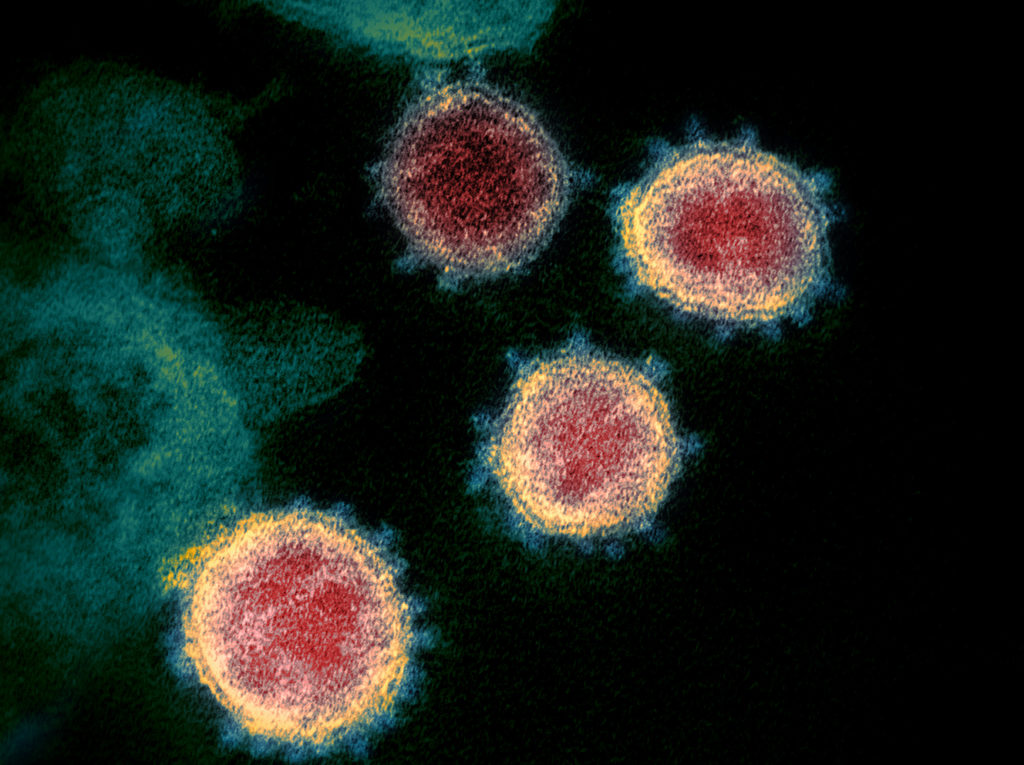Imagine you are a patient at a rural health facility. Your doctor is concerned you may have skin cancer. To be sure, she needs to take a skin tissue sample (a “biopsy”) and store it on a glass slide for evaluation by a pathologist. But unfortunately, the clinic you are in does not have an expert skin pathologist on staff, so the biopsy must be sent away to another facility for review.
“We’re one of only a handful of fully sub-specialized departments in the country for interpreting biopsies.”
This method is time-consuming, and it can also lead to incomplete and inaccurate diagnoses due to decay of the sample over time and the handling of the sample by multiple people.
Enter Digital Pathology
Digital pathology — converting glass slides into images that can be stored in a computer, and that look the same on the screen as they do under a microscope — can change the way patients are diagnosed and treated. Massachusetts General Hospital is a leader in this field, increasing the accuracy of diagnoses from biopsies and what can be learned about patient health.
“We’re one of only a handful of fully sub-specialized departments in the country for interpreting biopsies,” said David N. Louis, MD, Pathologist-in-Chief at Mass General. “Most places in the country have mostly general pathologists on staff. That general pathologist does his or her best to interpret the biopsy, but then they may need to send it to a specialist. At Mass General, the biopsy is interpreted by a specialist from the start. So a patient is getting a more expert diagnosis, more quickly.”

Because of the increasing ease and accuracy of digital pathology, doctors at Mass General have the ability to provide high-quality rapid service to anywhere in the world. “We are even exploring opportunities right now with hospital systems in other countries where most of the pathological interpretation will be done through our department,” said Dr. Louis. “That solves the distance problem and in turn provides improved quality and turnaround time.”
Another Mass General pathologist, David C. Wilbur, MD, director of Clinical Imaging and professor of Pathology at Harvard Medical School, is part of the development team responsible for creating digital screening technology currently being tested for use worldwide.
The Future at Our Fingertips
Right now, the accuracy of a pathology report depends upon highly trained doctors reviewing each slide and providing context based solely on the contents of the slide. But this is changing rapidly through the use of Big Data — incorporating everything that is known about a patient’s medical history to develop early diagnosis and more accurate, effective treatments.
Dr. Louis believes the most powerful advancement in digital pathology will happen when all tissue samples are converted to digital images that can be easily examined by a doctor in coordination with a patient’s lab tests and genetic information. In addition, the information contained in the digital pathology images themselves can lead to the discovery of clinically relevant conclusions that may be beyond the reach of standard human “visual” examination.
The Pathology Informatics team at Mass General is leading the charge toward the next significant advancement. John Gilbertson, MD, director of the Division of Pathology Informatics at Mass General, explains, “Like a weatherman who must rely on countless pieces of technology to compile massive amounts of data to predict the weather, pathologists must create and rely upon a system of tools to learn and know as much about the patient’s disease as possible by personalizing patient treatment and diagnosis through data analysis.”
Dr. Gilbertson also leads the Pathology Informatics Fellowship Program at Mass General, which teaches these approaches to the next generation of pathologists.
Better Health for You
The advancement of digital pathology means more efficient transfer of data from doctor to doctor.
All of these developments in digital pathology are working towards the same outcome — faster, more accurate diagnosis and treatment for all patients, wherever they are. On a weekly basis, Mass General hosts conferences that bring together doctors and pathology teams from every corner of the globe to review digital images, address technical questions and share experiences in the field.
Thanks to Mass General leadership, the implementation of new pathology analysis methods in places as diverse as Peru, Pakistan, China and Iraq is enabling the global medical community to connect in ways that will benefit the future of medicine, the study of disease and the advancement of biomedical research. For Mass General patients, and patients around the world, the advancement of digital pathology means more efficient transfer of data from doctor to doctor. It means it’s easier than ever to get a second opinion from a doctor not in your immediate area. And, most importantly, it means faster, more accurate analysis and more personalized treatment.
Make a gift to the MGH Fund to help improve health care worldwide
By offering your support of the MGH Fund today you’ll help make advances in medicine and high-quality, patient-centered care not just a reality for Mass General patients, but for people around the globe. Please give generously to support the MGH Fund.
The MGH Fund is an important source of funding that allows Mass General to stay at the forefront of innovation in areas like digital pathology.



